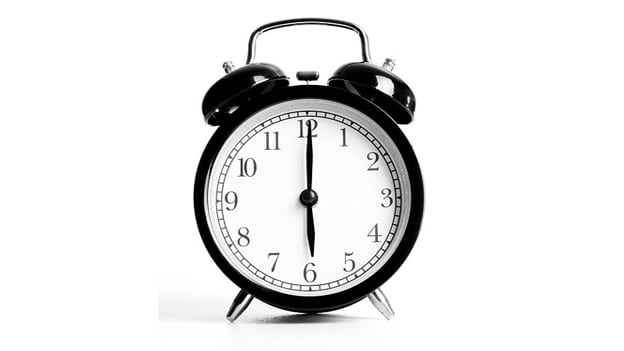Here are the morning routines of highly successful people

Will Durant said, “We are what we repeatedly do. Therefore, excellence is not an act but a habit.” The habits that we have formed over the years make for most of our daily lives. One of the important characteristics of habits is that they are automatic and operated by our subconscious mind. According to a study done at Duke University, about 45% of people’s daily activities factors in their daily habits. Although most of what we do every day feels like a decision, a major part of our activities is a result of our habits that we have formed over the years.
Habits are very powerful. They are subtly and gradually ingrained in us over a period of time, even without our awareness. Once rooted, it may not be easy to rid ourselves of these habits. Research says that 95% of people who lose weight will regain their weight because they tend to go back to old habits. 30% of people who set New Year’s resolutions quit after the first week returning to old ways of doing things. Jonnelle Marte from The Washington Post wrote, “Evidence shows that most lottery winners who make it to the top one percent of income earners usually don’t stay at the top for very long.” This has a lot to do with the habits they have inculcated.
Kop Keymeyer was an American author who was very curious to understand why only some people were successful. He studied successful people for over 54 years and wrote a book called, “1000 Success Principles,” which sold over 50 million copies. He believed that what separated the successful people from unsuccessful people can be summed up in one word, “HABITS.” If you have ever wondered what successful people have in common, it’s an empowering morning routine. They all wake up each morning consciously and proactively set the tone for the day and life they want. In fact, everyone has a morning routine. For most others, it’s a disempowering routine that begins in a reactive manner with hitting the snooze button and rushing to start the day with stress and anxiety about all the things to get done that day.
Here are some things successful people do as a part of their morning ritual. Yes, morning ritual!
1) Rise early: Rising early is a part of the morning routine for many CEOs and other successful people. Laura Vanderkam, a time management researcher, in her study, found that 90% of executives wake up with or even before the sun to get a head start on their day. Indira Nooyi, the PepsiCo CEO, wakes up at 4:00 a.m. and is at work before 7:00 a.m. Apple CEO, Tim Cook, is up at 3:45 a.m. and works on sending emails for an hour. Mary Barra, General Motor’s CEO, is an early riser as well and is in her office by 6:00 a.m. In fact, waking up early enables them to accomplish more by 11:00 a.m. than most people accomplish in a day.
2) Exercise: Richard Branson, founder of Virgin Airlines, says his morning routine entails waking up at 5:45 am every morning, going for a swim around his island and playing tennis before he eats a healthy breakfast. Bill Gates, the founder of Microsoft, starts his day off by first investing in his health by spending an hour on the treadmill while listening to some educational DVDs. Starbucks CEO Howard Shultz wakes up at 4:30 every morning to workout and walks his dogs. Jack Dorey, Twitter CEO, wakes up at 5:30 a.m. and begins his day with a jog. Working out triggers our ‘happy hormones’ also known as endorphins that switch on our brain’s learning center and increases our brain functioning up to 37%. The sooner in the day we get those endorphins pumping, the better prepared we are to tackle the day physically, mentally and emotionally.
3) Meditate: Padmasree Warrior, the CEO of NIO US and one of the 100 Most Powerful Women in the world, credits meditation to one of her master keys to success. Further, she also practices “digital detox” every Saturday. She detaches from her gadgets and focuses on cooking, poetry, painting and community activities. Jeff Weiner, CEO of LinkedIn, schedules time every day to meditate. He says simply thinking and meditating improves not only his ability to empathize with others but also to be productive and a better leader at his workplace. Arianna Huffington, the co-founder of one of the most powerful news media and opinion portal - the Huffington Post, incorporates 20-30 minutes of meditation as a part of her daily routine.
4) Map out a Top-Heavy Schedule: Mark Twain said “If it’s your job to eat a frog, it’s best to do it first thing in the morning. And if it’s your job to eat two frogs, it’s best to eat the biggest one first.” In other words, “Frogs” represent tasks on our to-do list we are likely to procrastinate. At times, we are likely to have a few big tasks on our list that we feel least motivated to work on. It helps first to get started on the things we dread the most. Twain says it is best to tackle the most important and largest task first thing in the morning while our minds are clear and our willpower is at its peak. In fact, “Do it now!” is the mantra most successful people abide by. They are very action-oriented.
5) Practice Gratitude: Tony Robbins, a highly successful life coach and entrepreneur, practices gratitude first and foremost as part of his daily routine. He starts his day by focusing on all the things he is grateful for in his life. Oprah Winfrey, the famous TV show host, also incorporates practicing gratitude as a part of her morning ritual. John Paul DeJoria, an entrepreneur, and billionaire swears by this habit. He says, “For the most part, I can’t tell you how important it is to take those first five minutes of the day and be thankful for life.” This practice sets the tone for the day in a positive direction and helps overcome negative emotions such as fear and anger that debilitate our progress during the day. In fact, brain scans of people who practice gratitude indicate a stronger brain structure for empathy and social cognition.
In the past decade, there has been a wealth of research created to examine organizational habits and routines regarding understanding how they influence productivity at work. In fact, a large part of the organizational success lies not in the big strategic decisions that are made but on the routines followed by individuals in the organizations. The well-known American entrepreneur and motivational speaker Jim Rohn said, “Success is something you attract by the person you become.” One of the surefire ways to attract success is to equip ourselves with habits that empower us.










